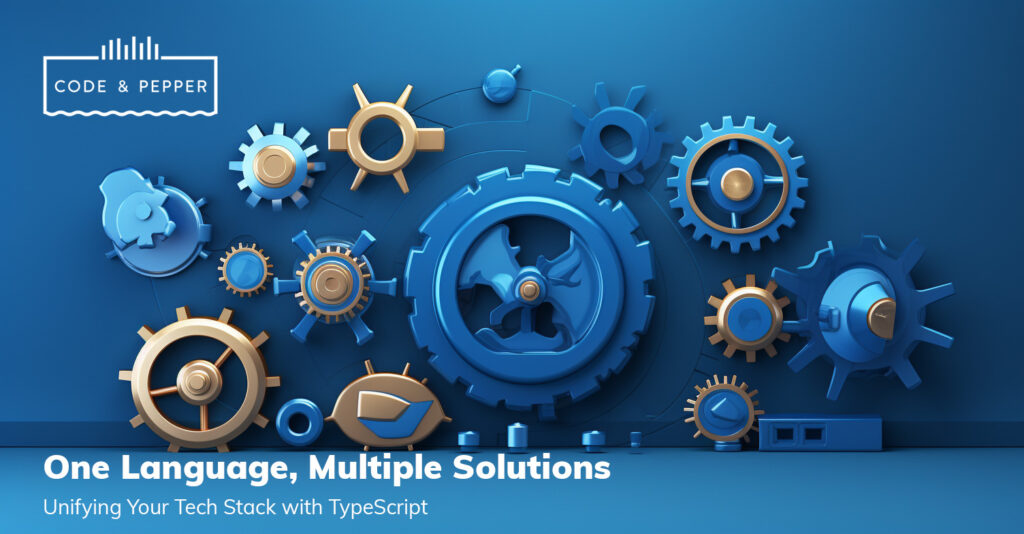In the rapidly changing world of technology, making the right choice in programming languages is crucial for the success of your project. When it comes to achieving a seamless blend of front-end development, back-end development, and infrastructure, TypeScript development emerges as a leading option. In this article, we’ll delve into why TypeScript is an excellent choice for a truly unified tech stack.

Why TypeScript?
TypeScript, a superset of JavaScript, offers all the benefits of JavaScript while adding an extra layer of safety with its static type-checking. Developed by Microsoft and enhanced by Google, TypeScript is backed by industry giants, ensuring its long-term viability. Its open-source nature and robust community support further make TypeScript a compelling choice over alternatives.
Front-end Advantages with TypeScript
- Type Safety: TypeScript’s type checking helps in catching errors during front-end development, resulting in cleaner and more reliable code.
- Easier Refactoring: The self-documenting nature of types makes it simpler to understand the structure and modify the codebase.
- Enhanced Tooling: Enjoy robust IDE support with autocompletion, type checking, and advanced debugging, enhancing developer productivity.
Back-end Perks with TypeScript and Node.js
- Unified Language: Using TypeScript for both front-end and back-end development simplifies your stack, making it easier to transfer code and skills.
- Strong Typing: For APIs and data modeling, TypeScript’s strong typing makes the code more predictable and easier to test.
- Community and Ecosystem: With Node.js, TypeScript users get access to a large variety of frameworks like NestJS and libraries, making backend development a breeze.
Infrastructure as Code (IaC) with TypeScript
- Reusable Code: Define your infrastructure using the same language, making it easier to understand and manage the entire stack.
- AWS CDK Support: TypeScript has native support for AWS‘s Cloud Development Kit, adding a level of safety and efficiency in defining cloud resources.
- Scripting and Automation: The robustness of TypeScript allows for advanced scripting and automation capabilities for your DevOps needs.
Why is TypeScript Ideal for a Unified Tech Stack?
- Streamlined Development: A single language across the stack makes it easier for developers to adopt a full-stack approach, fostering a smoother development process.
- Future-Proofing: With support from tech giants and a thriving community, TypeScript ensures your stack remains up-to-date and easy to maintain in the long term.
- Comprehensive Tooling: TypeScript’s extensive tools and libraries make it a one-stop-shop for all your development requirements.
Conclusion
TypeScript offers a plethora of benefits for modern development needs. Its strong typing, robust tooling, and wide-ranging community support make it an ideal choice for unifying your tech stack. From frontend to backend, and even extending into Infrastructure as Code, TypeScript provides a comprehensive, efficient, and future-proof solution for your development ecosystem.
For those looking to streamline their development process, reduce errors, and prepare for the future, TypeScript is more than just a viable option—it’s a strategic advantage.